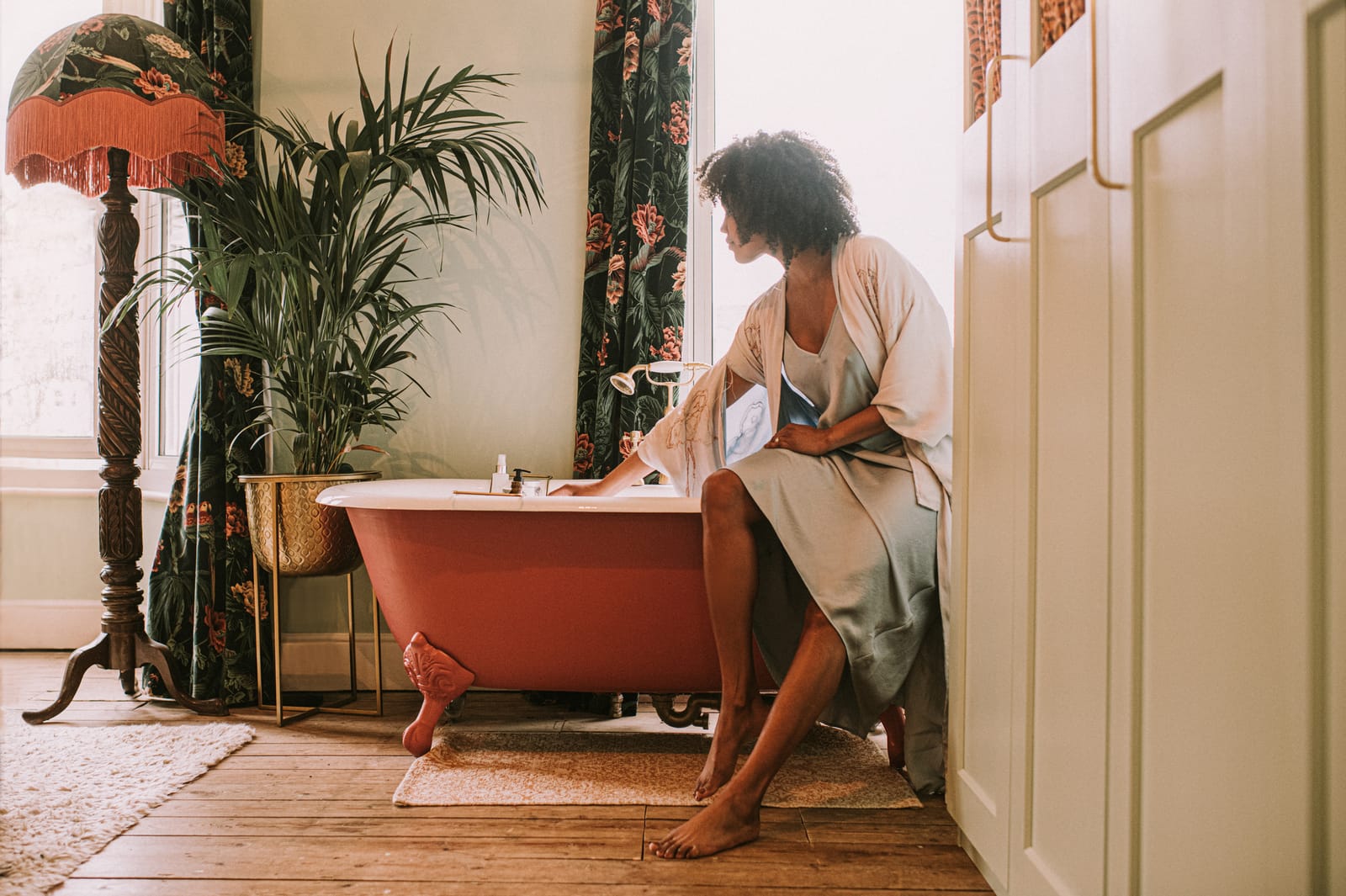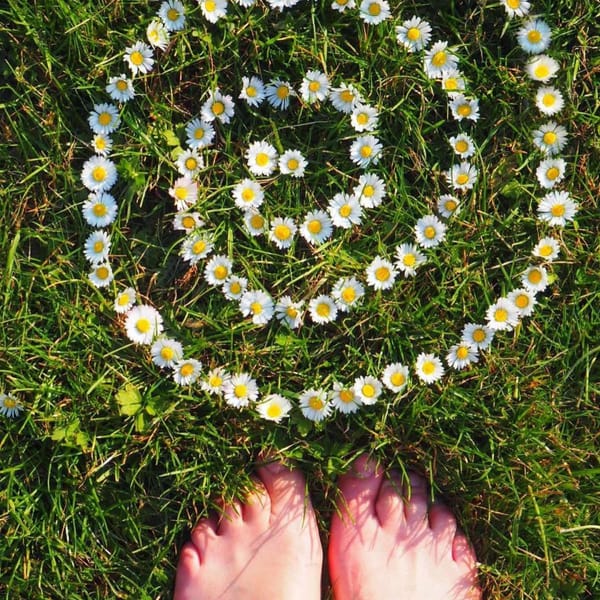How many times have you replied to the question, “how are you?” with the answer "busy"? asks Dr. Christiane Northrup
In today’s world almost everyone is busy. Busy is the new status quo. It has become almost like a competition in which being competitively busy means we are also obsessed with what we haven’t done. But, even if you love what you do, doing too much of anything without regular breaks can cause stress hormone levels to become and remain high, setting you up for a host of health concerns. We have all heard about people working themselves to death in stressful jobs. And doctors often warn patients that being too busy can cause serious health problems including anxiety, depression, headaches, insomnia and heart attack.
In addition, when we are too busy, we don’t exercise enough, eat nutritious food, or get enough sleep. This fosters a vicious cycle of being too busy to be healthy. The less we are able to care for ourselves in healthy ways, the worse we feel. The worse we feel, the less productive we are, therefore increasing the amount of time it takes to accomplish the things we need to do. So why do so many people, women in particular, continue to burn the candle at both ends busying themselves to the point of exhaustion and worse?
The myth of productivity
Being busy is an addiction and it can be as challenging to stop as other addictions such as alcohol, shopping, or working because it is a way to escape or numb yourself. But, unlike other addictions, Western society puts a high value on being busy. We are conditioned to believe that being busy equates to being good, worthy, and successful. In addition, so much of our busyness is determined by how we were conditioned.
For example, if your parents worked long hours during the week and then did endless chores or exercised to extremes on the weekends to make up for a week of sitting at a desk, then you may have been conditioned at an early age to believe that these patterns are what you need to follow as well. If this sounds familiar, the more you do, the better you probably feel about yourself.
When you are not busy, you may fear being perceived as lazy, or a failure. And resting may make you feel guilty! But, for most of us, as we get older the demands we continue to place on ourselves are not in line with our changing values and needs, such as taking time to prepare healthy meals, walking in nature, or spending quality time with friends and family. While the toll that busyness takes on us is high, the challenge is, most of us don’t know how to stop being so busy!
My Tips For Learning to Relax and Creating Balance In Your Life
There is no single strategy that works for everyone when it comes to finding the healthy balance between busy versus enjoying relaxation. And, there are many people who need to work long hours or several jobs to support their families. Depending on your personal stamina and what you have going on in your life, there may be times that being busier is OK. That said, here are some tips that you can use, no matter your situation, to let go of the unnecessary busyness that may be wearing you down:
1. Stop saying “I am so busy”
When we repeatedly say we are busy, we set ourselves up for being unable to slow down. As Mahatma Gandhi said, “Your words become your actions, your actions become your habits.” Break the habit of saying you are busy.
By the same token, stop taking on everything asked of you. When someone asks you to do something, take a breath and listen to your inner voice. Is it necessary for you to take on what is being asked of you? Are you able to kindly but firmly say “no” without making up excuses or playing the “busy card.”
2. Don’t wear a watch
I am not advocating that you be late for work, social commitments or events. But, when you don’t wear a watch you naturally slow down. You become more thoughtful and you begin to plan out your life better so the unnecessary things fall by the wayside. Plus, just about every biological process has a daily or seasonal rhythm.
When you remove the artificial time filter, you become able to tap into your own body clock and your needs. And, by all means, don’t wear a “smart” watch. Research shows the average smart watch user checks it over 150 times per day! Smart watches have become as addictive as mobiles when it comes to checking email, apps, and playing mindless games!
3. Cancel or don’t accept unnecessary meetings
It’s ok and even necessary to attend some meetings. But sometimes, especially in work cultures that centre around popular opinion and politics, wellbeing meeting objectives get lost and the same old issues just keep getting rehashed.
Plan to attend meetings only if the agenda calls for making decisions and assigning tasks for follow-up. Be sure the agenda is set beforehand and use your time during a meeting to make decisions and assign actions items. Remove yourself from all other meetings. Your team will get the hint that you are not available for every conversation or detail and will become more productive as a result.
4. Make to-do lists and prioritize
Making a successful to-do list can be a challenge. A good rule of thumb is to make sure your daily to-do’s don’t exceed ten items. That way you get the most important things accomplished. The rest can move to a weekly or a long-term list. For example, if you have a deadline where something is due tomorrow, but you have a long list of small things such as vacuuming, grocery shopping, and taking out the trash ahead of finishing your project, you will end up working longer hours and placing more stress on yourself than necessary. Be sure not to confuse goals with tasks. Prioritize what must get done today.
5. Play, have fun, act like a child
You have heard the saying, “laughter is the best medicine.” Including more fun into your daily life can improve your health. But when people become overly stressed, they tend to give up the things they enjoy.
Play is both an important source of relaxation, and stimulation. There is science that shows laughter, having fun and engaging in play can relieve stress, increase brain function and creativity, and improve your relationships. So making time for fun in your life will actually improve your ability to accomplish your work or tasks more efficiently so that you become less busy. Plus, having fun keeps you feeling young and vibrant. George Bernard Shaw said, “we don’t stop playing because we grow old, we grow old because we stop playing.”
6. Get better quality sleep
You don’t necessarily need more hours, unless you truly aren’t getting enough. But, most of us could use better quality sleep. Be sure to go to bed and wake up at the same time every day; turn off your TV, computer, phone and WiFi at least 15 minutes before you go to bed; and stop eating and drinking anything with sugar, caffeine, or alcohol at least 2 hours before bed. You will feel more alert, accomplish tasks more easily, be in a better mood and have energy for the things you love.
7. Learn how to accept praise
A big part of breaking the busy cycle is allowing yourself to feel success or completion. When we practice receiving in this way, we are able to move away from the thoughts and feelings of “there is too much to do, I will never get it all done” and toward knowing that “I am enough.” Acknowledge your accomplishments regularly and your feelings of unworthiness will melt away. You can do this by placing your hands over your heart and offering yourself praise. And remember when it’s all said and done, you don’t want your tombstone to read “she never got it done.”
8. Do Your Inner Work
Our bodies are permeated and nourished by spiritual energy and guidance. Learning to reconnect with our Source is not difficult. Just set aside some quiet time. 10 minutes is plenty to start. Take a few deep breaths. Set an intention to invite Spirit into your life and then visualize the outcome.
Be sure to express gratitude for all you have and for what you are about to receive. Write down any guidance or inspiration that comes to you and detach from any fears or uncertainties that arise. Doing this every day will help you reconnect with your spirituality. If you feel anxious about not being busy, try doing something creative that helps you turn inward.
For example, try gardening ( barefoot is best) or playing an instrument. Take a nature walk. Dance.
When we are connected to our souls we become capable of freeing ourselves from the habits that lock us into stressful patterns and relationships.
Christiane Northrup is a visionary pioneer and a leading authority in the field of women’s health and wellness. She teaches women how to thrive at every stage of life. When she’s not traveling and teaching, Christiane loves dancing Argentine Tango, playing the harp, going to the movies, getting together with her daughters and friends and reading.
MORE INSPIRATION
READ Making Life Easy by Dr. Christiane Northrup
EXPLORE Articles, videos and more health wisdom at drnorthrup.com







